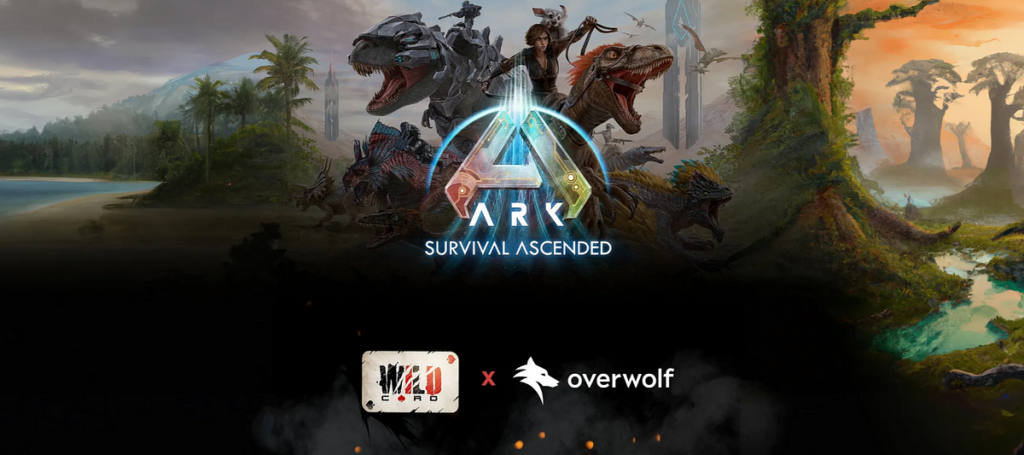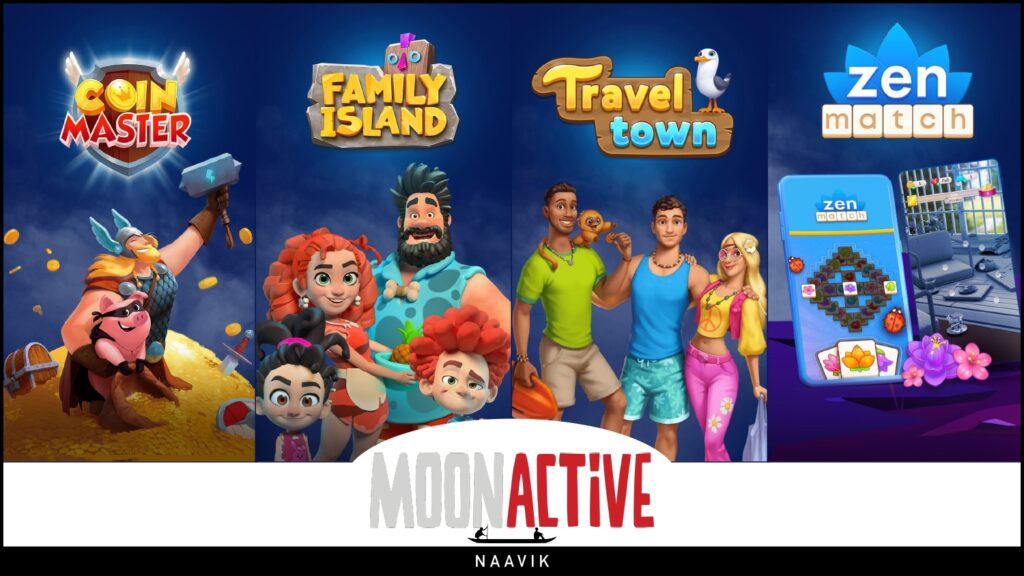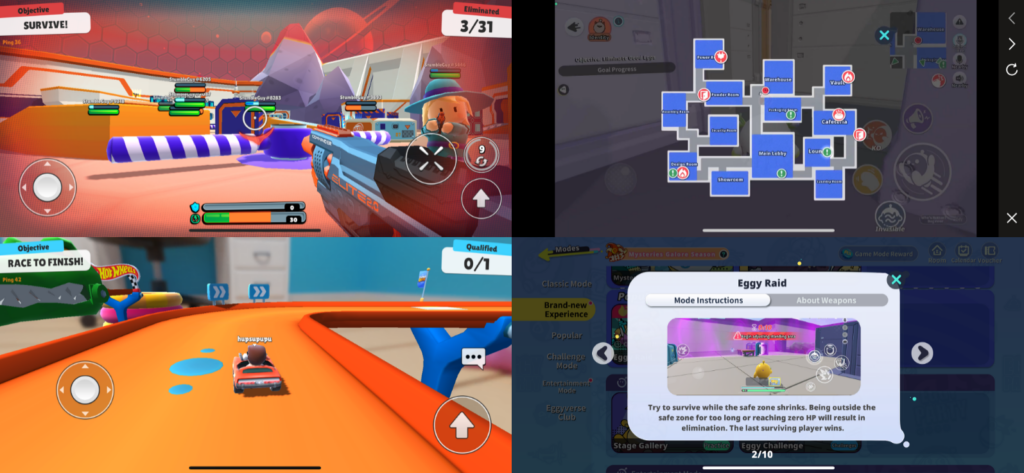
User-generated content (UGC) is one of the most exciting trends across gaming for good reason: lowering barriers to creation sparks a Cambrian explosion of new creators, innovative ideas, and new platforms to play on. And while the leading platforms here — like Roblox and Epic’s Unreal Editor for Fortnite (UEFN) — are going to gain prominence for years to come, they’re not the only game in town. In fact, the most under-discussed sub-trend of this new UGC gaming wave might actually be what first defined it many years ago: modding.
Video game modding is a 40-year-old industry staple (going all the way back to Castle Smurfenstein and Lode Runner), but so much around the activity has changed — and is changing at a profound pace.
Modding accessibility has greatly improved from both a player and creator perspective. For players, the introduction of new platforms (like CurseForge, Steam Workshop, Mod DB, mod.io, and Nexus Mods) has made it easier to find and integrate mods, although game stability, security, future compatibility, and more all remain friction points in places. As for creators, while mod kits have been around for years, continuing to lower barriers to creation through new and more powerful low-code tools remains a major unlock.
New modding platforms take approachability and accessibility up another level, too. Modern day APIs make cross-platform functionality much easier and enable moderation capabilities, which make it more compelling for studios to embrace the scene. Better integration will perhaps eventually become the default to discover and access mods within games, instead of (or at least on top of) third-party websites and platforms.
Lastly, monetization around mods is evolving. Historically, modding has always been viewed as a hobby, and paywalled mods were heavily criticized. In some ways, that’s part of why indie game development took off; as small creators couldn’t monetize their creations through the games they loved, many started to create and sell their own titles from scratch. That ethos still persists in many circles today, but that widespread belief is no longer the only prominent view. Embracing meaningful monetization options enables more creators to justify putting more time and effort into modding. That one-two punch — improved accessibility plus monetization potential — means modding can level-up as a trend in the years to come.
Many studios remain cautious around modding, though: it impacts design philosophy, must be considered from day one, adds content moderation work, and carries IP usage and legal considerations. Yes, not all games need to support modding, but in some cases, like with Dota 2 Arcade shutting down earlier this year, we’re actually seeing some take a step backwards. This trend will only take off if the ease of use and benefits outweigh the cost and effort far more than in the past. So what could that look like in the future?
ARK: Modding Ascended?

One example that showcases what may lie ahead is what Studio Wildcard is doing with ARK: Survival Ascended, the remastered, Unreal 5-powered survival crafting game. The developer partnered with Overwolf’s CurseForge to power the game’s modding capabilities, which will now be enabled cross-platform with a dedicated mod-browser built into the game.
That’s already a clear level-up on the franchise’s previous modding capabilities, which certainly weren’t shabby (in predecessor ARK: Survival Evolved, mod authors published over 10,000 mods through Steam Workshop). Two other game development studios, Blue Isle Studios and Skymap Games, are already creating premium DLC-level mods for Survival Ascended, too.
Additionally, Overwolf and Studio Wildcard are hosting a modding competition that will reward $350K to both traditional free modders but also new premium DLC creators. It was also shared in Overwolf’s blog post that “Mod authors will optionally be able to specify price points for their premium mods, with 50% of the price point going to the mod author.”
Time will tell just how successfully premium modding creates value and engagement in ARK: Survival Ascended. But the broader fact that professional studios are building on top of another studio’s game is worth noting. In the same way that Roblox and UEFN have attracted professional studios to build on their platforms, we may see a similar trend emerge through the modding of other popular games.
Smaller studios dreaming up new projects should keep an eye on where this all goes — and perhaps even reach out to teams like Overwolf (one of our partners) to see what upcoming projects might be a good strategic fit to build on top of. Similarly, many AAA teams should think about how unleashing “professional modding” could productively increase the appeal, longevity, and monetizable upside of their games too.
It’s also worth pausing to reflect that as UGC expands the gaming market and steals market share, the largest IPs and games are also becoming bigger, more engaging, and will also steal market share. The middle will get increasingly squeezed and harder to win in, but if those middle-market participants have more opportunities to also sell into the audiences of large games, it could create new revenue opportunities. Also, if the 50% revenue split (as it is with ARK: Survival Ascended) becomes the norm, that’s already better than the average payouts on Roblox.
Where all of this goes — and how widely tested and adopted it becomes — is still an open question. It will take time for long-held beliefs about modding to change, and best practices around revenue sharing, discoverability, setting parameters for creative freedom, and more will take time to hammer out — and likely differ by game, company, and platform. However you slice it, modding as we know it should continue to be treasured, supported, and grow as accessibility rises, but this new branch of “professional modding” will be fun to watch unfold.
A Word from Our Sponsor: ZEBEDEE

Where Fun Meets Bitcoin!
ZEBEDEE is a fintech and payments processor with a plug-and-play API plus SDK, enabling developers to easily integrate instant, borderless low-fee payments into various applications using the Bitcoin Lightning Network. Offering transactions with fees of less than one cent, ZEBEDEE already powers over 4,000 developers across a variety of sectors, including gaming, streaming media, and social media, processing 10,000-plus million transactions monthly.
Early adopters have reported impressive results. For instance, Square Enix experienced an 82% increase in ARPDAU for its game Ludo Zenith, Fountain Podcasts doubled its user base after integration, and Fumb Games saw a 1,215% player retention increase for Bitcoin Miner. ZEBEDEE targets the growing demand for borderless transactions, ensuring that digital businesses can effectively engage and monetize a global user base, including the unbanked.
In Other News

Funding & Acquisitions
- Nitro Games signs a €9M deal with Netflix to develop and operate an undisclosed game.
- TapNation closes a $16.1M funding round.
- AppsFlyer acquires DevToDev for an undisclosed sum.
- Azur Games buys the hypercasual games portfolio of Good Job Games.
- AstroBeam raises $3M for VR multiplayer games.
- VR firm MyDearest raises $8M to expand its publishing efforts.
- Ludo Superstar creator Blacklight Studios concludes a funding round for an undisclosed sum.
Business & Product
- Warcraft Rumble makes almost $4M in four days.
- Stumble Guys’ UGC platform Stumble Workshop is rolling out.
- Grand Theft Auto V clears 190M in sales as Take-Two losses deepen.
- Roblox reports 38% revenue spike in Q3, 70M daily active users.
- Immutable partners with Ubisoft’s Strategic Innovation Lab for Web3 gaming.
- Fortnite won’t be on Google Play after Epic turned down a $147M deal.
- PlayStation 5 shipped 4.9M units during Q2 2023.
- Q3 earnings reveal that Mortal Kombat 1 has sold nearly 3M units.
Miscellaneous
- USA-based buyers accounted for almost half of UK games company acquisitions since 1993.
- GamesIndustry.biz conducted a salary survey among UK studios.
- Nvidia announces January event after rumors of an RTX 4080 Super launch.
- Sony will only release six live titles by the end of Q1 2026 instead of the 12 initially announced.








